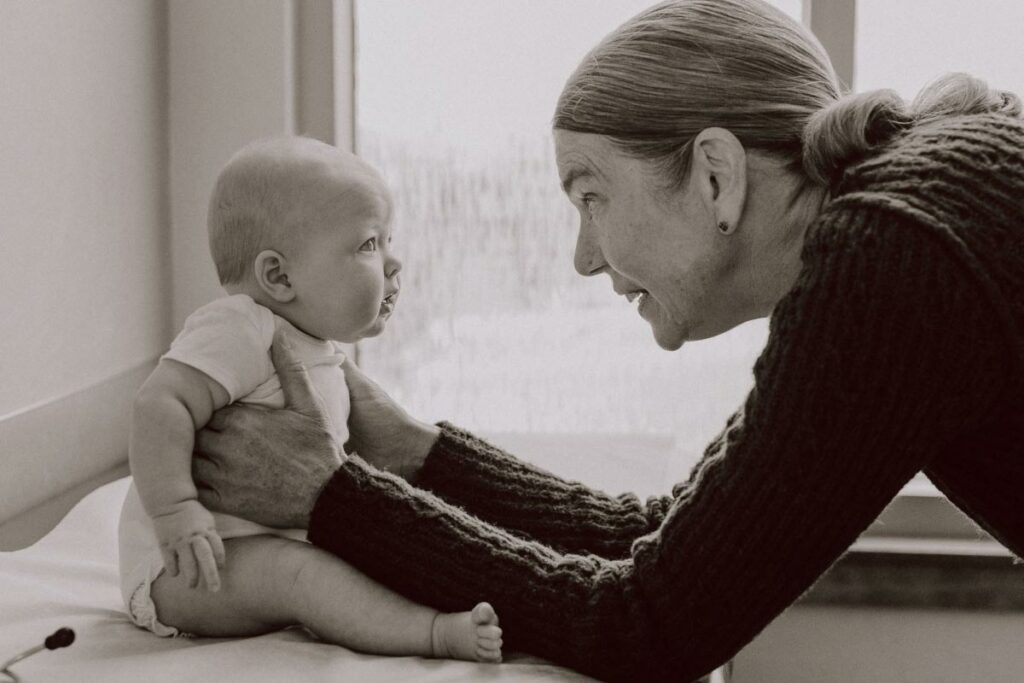Caring for a newborn is a beautiful journey filled with precious firsts, but let’s be honest—it can also feel overwhelming, especially when the crying starts. Babies cry. It’s how they communicate, and it’s completely normal. But as a new parent, it’s natural to wonder: “What does this cry mean?” or “Am I doing something wrong?”
Take a deep breath. You’re doing great. With a little patience and practice, you’ll start to recognize the different types of cries and feel more confident soothing your baby. Let’s explore why babies cry, how to understand their signals, and what you can do to comfort them—day or night.
Why Do Babies Cry?
Crying is your baby’s way of talking to you. They’re not trying to upset you; they’re just letting you know they need something. Sometimes the reason is obvious—like hunger or a dirty diaper. Other times, it’s a little trickier to figure out. But every cry has a purpose, and your baby is counting on you to help.
Here are some common reasons your little one might be crying:
- They’re Hungry: Hunger is one of the most common reasons babies cry. If it’s been a while since their last feeding, or they’re making sucking motions, this is likely the culprit.
- They’re Uncomfortable: Maybe their diaper is wet, or they’re feeling too hot or cold. Even small things, like a tag on their outfit, can make them fussy.
- They’re Tired or Overstimulated: Babies need a lot of sleep, but falling asleep can be hard for them, especially if they’ve had too much excitement or noise around them.
- They Have Tummy Troubles: Gas, colic, or an upset stomach can make babies cry more than usual, especially in the evenings.
- They Want Comfort: Sometimes, they just need to be held. Your baby craves your warmth, your smell, and the sound of your voice.
- They’re Not Feeling Well: Occasionally, crying can signal something more serious, like illness. If their cry seems unusual or is accompanied by symptoms like fever or rash, it’s a good idea to check in with your pediatrician.
How to Understand Their Cries
At first, all cries might sound the same, but soon you’ll start noticing differences. A hunger cry might be rhythmic and repetitive, while a cry from discomfort might sound fussier or more strained. Pain cries are often louder and more intense, while a tired cry may sound more like whining or grumbling.
The more you pay attention to the sounds and patterns, the more you’ll learn about your baby’s unique way of communicating. Trust yourself—your instincts will guide you.
How to Soothe Your Baby
Once you figure out why your baby is crying, you can start trying to comfort them. And if you’re not sure what’s wrong? That’s okay. Sometimes, trial and error is the best approach.
Start with the Basics
Make sure their diaper is clean, their tummy is full, and they’re not too hot or cold. These simple checks can solve a lot of crying spells.
Hold Them Close
Babies thrive on physical contact. Holding your baby close—especially with skin-to-skin contact—can calm them almost instantly. They feel your warmth, hear your heartbeat, and know they’re safe.
Swaddle Them
Wrapping your baby snugly in a blanket can help them feel secure, like they’re back in the womb. Pair it with gentle rocking, and you’ve got a soothing combination.
Try Some White Noise
Soft, steady sounds—like a fan, a lullaby, or a white noise machine—can mimic the sounds your baby heard in the womb, helping them relax.
Soothe Their Tummy Troubles
Swallowed air from crying or feeding can cause gas and discomfort. Try burping your baby mid-way through and after feedings.
Offer a Pacifier
Some babies find comfort in sucking, even when they’re not hungry. A pacifier can help calm them and give them something to focus on.
When to Worry About Newborn Crying
Most of the time, crying is normal. It’s just part of being a baby. But if your baby’s crying feels different—if it’s unusually high-pitched, persistent, or accompanied by symptoms like fever, rash, or vomiting—it’s a good idea to call your pediatrician. Trust your instincts. If something doesn’t feel right, it’s always better to check.
The Importance of Taking Care of Yourself
Let’s not forget about you. Caring for a crying baby can be exhausting, especially when it feels like nothing you’re doing is working. It’s okay to feel frustrated or overwhelmed—it doesn’t mean you’re a bad parent.
When you’re feeling stressed, take a moment to breathe. Step away for a minute if you need to (as long as your baby is safe). Ask for help from a partner, friend, or family member. And remember, it’s perfectly okay to take care of yourself too. The calmer and more rested you are, the better you’ll be able to comfort your baby.
COPA is Here to Help
At COPA, we understand how challenging those early days and nights with a newborn can be. Our pediatric team is here to support you every step of the way, offering guidance and reassurance as you learn to navigate parenthood through excellent newborn care.
Your baby’s cries might feel overwhelming now, but with time, you’ll come to understand their unique language. And each time you soothe them, you’re not just meeting their needs—you’re building a bond of love and trust that will last a lifetime.
You’ve got this. And when you need a little extra support, we’re just a call away. Book an appointment today to get started.
